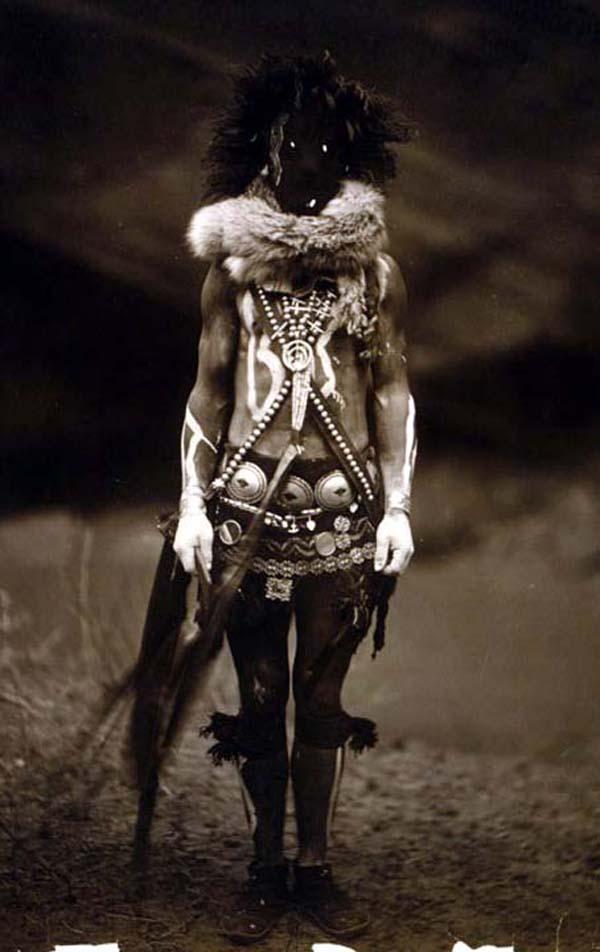Unveiling The Mysteries Of The Native American Skinwalker
The legend of the Native American skinwalker has long been intertwined with the rich tapestry of Native American folklore. These shapeshifters, often depicted as witches or sorcerers, hold a significant place in the cultural narratives of various tribes, particularly the Navajo. The concept of skinwalkers transcends mere superstition; it embodies deep-rooted beliefs about morality, the balance of nature, and the consequences of wielding power without responsibility.
Understanding the skinwalker myth is essential not only for appreciating the spiritual practices of Native American communities but also for grasping the fears and lessons that this legend imparts. Skinwalkers are typically said to have the ability to transform into different animals, embodying both the physical and spiritual characteristics of their chosen forms. This transformative power often evokes both fascination and dread among those who hear the tales, as it prompts questions about the nature of humanity and its connection to the animal kingdom.
As we delve deeper into the lore surrounding the Native American skinwalker, it becomes evident that these beings are more than mere figures of fear; they serve as a reminder of the complexities of life and the potential repercussions of our actions. Throughout this article, we will explore the origins of the skinwalker myth, its cultural significance, and the various interpretations that have emerged over time, illuminating the shadows of this enigmatic figure in Native American lore.
What is a Native American Skinwalker?
The term "skinwalker" is derived from the Navajo word "yee naaldlooshii," which translates to "he who walks on all fours." Skinwalkers are often perceived as witches who have gained the ability to transform into animals, particularly those that are considered powerful or cunning, such as wolves, coyotes, or bears. This transformation is said to enable them to traverse both the physical and spiritual realms, allowing them to engage in malevolent acts against others.
How Do Skinwalkers Fit into Native American Beliefs?
In many Native American cultures, skinwalkers represent the duality of life — the intersection of good and evil. They embody the fear of the unknown and the potential for betrayal that exists within communities. Traditionally, skinwalkers are believed to have once been respected members of society who turned to dark practices for personal gain or revenge. This transformation serves as a cautionary tale, warning against the dangers of greed and the abuse of power.
Are All Skinwalkers Malevolent?
While the most common portrayal of skinwalkers is that of malevolent beings, not all interpretations are strictly negative. In some narratives, skinwalkers are seen as protectors or guardians of the land, using their shapeshifting abilities to defend against threats or to communicate with the spirit world. This duality reflects the complexity of Native American beliefs, where the lines between good and evil are often blurred.
What Are the Cultural Implications of Skinwalker Legends?
The stories of skinwalkers are deeply embedded in the cultural fabric of Native American societies. They serve as a means of transmitting values, history, and lessons to younger generations. These legends highlight the importance of respecting nature, honoring traditions, and understanding the consequences of one's actions. Moreover, the fear surrounding skinwalkers often acts as a deterrent against behaviors that may disrupt community harmony.
How Have Modern Interpretations of Skinwalkers Evolved?
In contemporary culture, the skinwalker myth has evolved, becoming a popular subject in films, literature, and television. These modern adaptations often take creative liberties, sometimes amplifying the horror elements while straying from the original cultural context. Such portrayals can lead to misconceptions about Native American beliefs and practices, reducing a rich and complex tradition to mere entertainment.
What Precautions Should Be Taken When Discussing Skinwalker Legends?
When discussing skinwalker legends, it's crucial to approach the topic with respect and sensitivity. Many Native American communities consider these stories sacred and deeply personal. Engaging with the lore from an academic or anthropological perspective can be enlightening, but it's important to avoid sensationalism or exploitation. Listening to the voices of those within the culture and acknowledging the significance of these narratives can foster greater understanding and appreciation.
Are There Real-Life Accounts of Encounters with Skinwalkers?
Numerous accounts of skinwalker encounters exist within Native American communities. Many individuals claim to have witnessed strange happenings or experienced eerie sensations while in areas believed to be inhabited by skinwalkers. These stories often serve as cautionary tales, warning others about the potential dangers of straying from well-trodden paths or engaging in disrespectful behavior.
- Witnesses often describe seeing a creature that resembles a familiar animal but possesses unsettling human-like features.
- Some report hearing strange sounds or feeling an inexplicable sense of dread when near areas associated with skinwalker activity.
- Encounters vary widely, with some individuals attributing their experiences to supernatural beings while others view them through a psychological lens.
What Lessons Can We Learn from the Native American Skinwalker Legend?
The Native American skinwalker legend serves as a powerful narrative that transcends time and culture. It teaches valuable lessons about responsibility, respect for nature, and the consequences of one's choices. By examining the complexity of this myth, we can gain insights into the values and beliefs that shape Native American cultures while also reflecting on our own understanding of morality, power, and the balance of life.
Conclusion: Embracing the Rich Tapestry of Native American Folklore
The Native American skinwalker is a multifaceted figure steeped in history and cultural significance. By exploring the narratives surrounding skinwalkers, we gain a deeper understanding of the beliefs that underpin Native American traditions. Whether viewed as malevolent beings or misunderstood protectors, skinwalkers invite us to reflect on the complexities of life and the interconnectedness of all beings.
Unveiling The Connection Between Madonna And Tupac Shakur
Exploring The Life Of Reese Witherspoon's Son: A Glimpse Into Family And Fame
Hannah Survivor Millennials: The Resilience Of A New Generation


